Train | Pitch | Fund
This site is no longer being updated
TVMole started as a way to share industry intelligence with a small but dedicated band of factual TV developers, at a time when development was barely recognised as a discrete discipline, with its own unique skillset and challenges, let alone a viable career choice. Over time, TVMole's subscriber base gradually expanded from London, NYC and LA to reach development people in Sydney, Johannesberg, Buenos Aires and Lagos. In the last eight years the broadcast landscape has changed in all kinds of ways: keeping up with ever increasing platforms has become increasingly challenging and time consuming, and the site is in serious need of updating. At the same time exciting new projects have started to take shape, so difficult decisions have had to be made about where to expend the most energy and attention. It's time to bow out. The weekly newsletters will cease, and the site will no longer be updated but for the time being at least, TVMole will remain online so that you can still see the archives.
Development and Funding Tips
Moving away from a magazine style approach to more authored programmes, especially by artists themselves seems to be the way that arts programming is moving at the moment according to a panel of arts commissioners at Sheffield Doc/Fest. Partnerships with arts institutions and co-pros with other channels are also de rigeur. In a session chaired by Guardian journalist, Liese Spencer, the commissioners outlined what they were looking for, what they viewed as particular successes, their key challenges and what they were most jealous of. (Photo courtesy of Sheffield Doc/Fest - Jacqui Bellamy)
What makes specialist factual special? How can broadcasters make it relatable? How do we best use talent? To what extent can broadcasters take risks and what kind of special factual content punches through? These were just some of the key questions in the Specialist Factual session at Sheffield Doc/Fest chaired by filmmaker and journalist Ruth Pitt. (Photo courtesy of Sheffield Doc/Fest - Jacqui Bellamy)
At Sheffield Doc/Fest 2016, a panel explored looked at how the commissioning of singles, specials and series has changed in recent months. Chair of the panel, Emma Read (Emporium Productions), introduced the session by explaining how there has been many changes in the world of documentaries in the past year with BBC3 going online, Netflix, Vice and Buzzfeed streaming popular documentaries and a ‘changing of the guard’ at the BBC and ITV. She feels that there is much more clear blue water between the channels this year than in the last few years, largely because of this ‘changing of the guard’. Emma asked a panel of commissioning editors how these changes have influenced their commissioning decisions and what programmes they are particularly looking for. (Photo courtesy of Sheffield/Docfest - Jacqui Bellamy)
Given that we are witnessing the biggest refugee crisis since the Second World war it seemed fitting that Sheffield Doc/Fest 2016 ran a session entitled How to Document the World’s Biggest News Stories:Telling the Refugee Crisis. Chaired by Roger Graef, the panel included Siobhan Sinnerton, Channel 4’s Commissioning Editor for News and Current Affairs, James Bluemel, Director of Exodus: Breaking Into Europe coming soon on BBC1, Ahmad Al-Rashid, a Syrian refugee who is featured in Exodus and James Rogan, director of BBC’s forthcoming series Welcome to Britain (working title) for BBC3. (Photo courtesy of Sheffield Doc/Fest - Reem-Khabbazy)
A documentary about the Welsh steel plant threatened with closure won the Vice Rule Britannia pitch at Sheffield Doc/Fest 2016. Sibling filmmakers Shelley and Jamie Jones won £25,000 for their documentary Port Talbot: A Little Town Built on Steel focusing on a group of employees who are contemplating their futures in the face of the company’s possible closure. (Photo courtesy of Sheffield Doc/Fest-David Chang)
When people talk about the public service broadcasting remit of the BBC they often invoke the words of its founder, Lord Reith, who said that the broadcaster's mission was to " inform, educate and entertain" and in that order. As serious documentaries have become increasingly sidelined on mainstream television in favour of drama and reality formats, it sometimes seems that the only way to get a concentrated dose of information and education - with or without a smattering entertainment - is to buy a pass to one of the great international documentary festivals, such as Sheffield Doc/Fest or Hot Docs in Toronto. Films that do well on the festival circuit are then just as likely to find a general audience via one of the new challenger platforms, such as Netflix or Amazon, as they are on the traditional TV networks. Here is a selection of documentaries that played at IDFA 2015 and could be coming to a small screen near you in the future.
For anyone who has not been to Sheffield Doc/Fest before, it offers the chance to listen to commissioners from TV channels and film companies all over the world talking about what they are looking for from documentary makers and producers. It could also be the chance to pitch your latest project to some of them. And it’s an opportunity to watch the latest and best feature length documentary films.
As you often only have approximately seven minutes to pitch (particularly in a formal forum format such as IDFA Forum or at HotDocs in Toronto), you don't have time to talk about all the different elements of your film and how they fit together in a compelling narrative. Instead, you have to find the 'essence' of your film and present that. The popular Pitch and Trailer Workshop at IDFA 2015 explained how.
At Sheffield Doc/Fest in 2015 one of the panels, which consisted of a range of funders and filmmakers, discussed how documentary producer/directors could best approach writing grant proposals for documentary funds. Writing proposals is generally the thing that visually-driven filmmakers like doing least. And, as Tracie Holder, Production Assistance Program Consultant to NYC-based Women Make Movies, pointed out: it's hard to know what a good proposal looks like as filmmakers never see other people's proposals. Tracie explained that a written proposal is your introduction to a funder, so it should establish confidence that you can deliver a fantastic film.The reader should be able to "ski down the proposal without hitting any red flags".
Go to one of the major international documentary festivals and you'll come away feeling that the genre is alive, kicking and having a party. ITV's Jo Clinton-Davis said at Sheffield Doc/Fest 2015 that the audience was searching for "gems in the schedule", but of all the commissioner panels, the documentary session seemed to be the one where the commissioners had the most trouble articulating/least enthusiasm describing what it was that they wanted or needed in their schedules; they seemed to be suffering a strange collective ennui.
Ever so often a show comes along that changes the landscape and influences everything that comes in its wake: Big Brother (contributors/contestants/celebrities confined to one location for the duration of a series), Strictly Come Dancing/Dancing With the Stars (celebrities pairing with professionals to learn a skill and compete), One Born Every Minute (fixed-rig shows). The latest show to be spreading its DNA far and wide seems to be Gogglebox. At Sheffield Doc/Fest in 2015 a panel of Factual Entertainment Commissioners discussed their current needs.
If you are tasked with developing science programmes you face a number of challenges: the number of channels that actively embrace science is small, and sometimes those channels – in an attempt to attract as broad an audience as possible – can disguise their science content so thoroughly that it ceases to be science in the eyes of actual scientists. This makes for some uncomfortable conversations when trying to research and develop a science series or talent scout potential onscreen experts. Nonetheless there are commissioning opportunities out there for those dedicated and determined enough. A panel of science commissioners at Sheffield Doc/Fest discussed what science programming means to them and what they are looking to to commission in the coming months. Interestingly although many programmes and approaches were mentioned, few of them were recognisable as science.
In order to be successful when pitching to TV commissioners, it's vital to know what they are looking for. This is harder than it sounds, despite many broadcasters now sharing their commissioning briefs online (via their commissioning portals), because they are often vague and sometimes out of date. Another way to get a sense of what commissioners want is to attend a panel in which they outline their current needs. These panels are common at TV conferences and festivals around the world. Some commissioners are refreshingly candid, whilst other remain coy and seemingly reluctant to give away their secrets; others appear more interested in scoring political points against their co-panelists than helping the audience of producers understand what they should pitch. So they can be a mixed bag. And so it was with the Arts Commissioning panel at Sheffield Doc/Fest in 2015.
All 4 is the new umbrella name for all Channel 4's platforms, including online, which is the home to the Channel 4 Shorts strand. At a recent Sheffield Doc/Fest panel, the Head of All 4 and Digital Content, Richard Davidson-Houston, and Shorts Commissioning Editors Jody Smith and Issac Densu explained their remit to commission original digital content and how their audience differs from a mainstream terrestrial audience.
The first time Charlotte Fisher went to Sheffield Doc/Fest, in 2011, she was a total novice in the world of documentary making. She was a TV news reporter making a switch to factual programmes and although she’d made current affairs half hours, this was another world. In 2015 she went to the festival as a journalist, going to seminars and watching films; getting an overview of the whole festival. But she was also taking an interest with her other hat on, as a freelance producer at an independent production company.
After broadcast journalist Lisa Francesca Nand suffered her third miscarriage she decided to turn the camera on herself to document her experience and to try to find some answers as to why miscarriage might happen and how it can be prevented. After an emotional production process, the advice of a mentor and a visit to Sheffield Doc/Fest helped bring the film to completion and find a commission.
When you are developing a documentary there are many things to consider: access, narrative arc (is there an unfolding story, sufficient jeopardy and conflict to make commissioning editors take notice?) and creative approach. One thing that many filmmakers avoid thinking about - often until too late - is who the potential audience is and how to find the money needed to get the film not only into production, but finished. But these two things should be integral to the development process as they are invariably intertwined: a broadcaster or online platform is not going to fund a film that doesn't directly appeal to its core audience. Filmmakers who have more of an independent streak, who feel that they must operate outside of the mainstream - for idealistic reasons as much as necessity - are sometimes tempted to think that the normal rules of funding don't apply to them. They think if they film it, the audience will come. But they won't. In order for a film to be successful it needs fans (funders in the first instance, and audiences later on), not just at the point of release but right from the start of the process. No-one knows this better than Dunstan Bruce, a vocalist with the anarchist band Chumbawamba for 23 years.
Shepperton Studios based crewing agent Kate Watson recently attended her first Sheffield Doc/Fest; with many of her agency clients having worked on documentary films it was a great opportunity to dip into their world. But she soon ran into her first problem: how do you choose from 150 films?
In this, the latest of an occasional series I look back at some of the films I saw in 2014 at a variety of festivals including IDFA and Sheffield Doc/Fest. As usual I've roughly divided them into groups according to narrative approach; within each group of similar films I’ve listed in order of preference from best to worst (my favourites are in bold). Of course this is highly subjective and some of the films I disliked intensely have won awards, so you’ll have to make up your own mind. Some films could easily be placed in a different category but I’ve put them in what seemed to be the most prominent storytelling style for that film. However, whether you agree with my selection or not, you may find inspiration to help you decide what techniques will be most useful in developing and shaping the narrative of your own films. Having a clear idea of how you are going to tell the story will help you pitch your idea more effectively to potential funders. (Photo courtesy of IDFA)
Every November documentary filmmakers from around the world get the opportunity to pitch their projects to commissioning editors from international television stations and other financiers at IDFA’s international co-finance and production market, the IDFA Forum. After each pitch, the assembled commissioning editors and other funders are given the opportunity to express their interest/concerns and ask questions about the film. Over the course of several pitches a number of recurring, and sometimes contradictory, themes that emerge from the commissioners' feedback that can be useful to reflect on when planning your own pitch, whether at IDFA or elsewhere. Here are some of the comments from the IDFA Central Pitch in 2014 - although all the comments are project specific there are many insights that are transferable to any documentary in development, and can help you preempt potential objections to your own project. (Photo by Kennisland (CC BY SA)
new channels | channels news
- Sony Pictures Television has announced that it is launching a brand new UK channel, True Crime, on Tuesday 22nd March, 2016. Available on Freeview channel 60, True Crime will host back-to-back crime related programming, making it the platform’s only dedicated crime channel. Hosting a schedule packed with gripping real life stories, unexpected murder mysteries and law-breaking action, True Crime will be the home to shows including Deadly Women, Crime 360, The Devil You Know and The 9/11 Faker. Additional well-known favourites such as Caught on Camera, Dog the Bounty Hunter and Paternity Court will also have a home on the channel, making up a schedule that allows viewers to get closer to the scene of the crime than ever before. Source: Sony Pictures Television press release #
- A+E Networks®, a global media content company and VICE Media, the youth media brand and digital content studio, are launching a joint venture that will offer VICE as a new 24-hour channel programmed and produced exclusively by VICE. A+E Networks' channel H2® will be transitioned to VICELAND (working title). Launching in early 2016, VICELAND will be distributed in approximately 70 million homes, and will feature hundreds of hours of completely new programming developed and produced entirely in-house by the young creative minds that are the heart and soul of VICE, and the driving force behind its success over the last decade. VICELAND will launch with a full slate of prime-time shows, including Gaycation (with Ellen Page and Ian Daniel), Huang's World (with Eddie Huang), Noisey (with Zach Goldbaum), VICE World Of Sports (with Sal Masekela), Black Market (with Michael K. Williams), Flophouse, Party Legends, Weediquette (with Krishna Andavolu), and many, many more. The launch of VICELAND coincides with VICE's explosive growth across online and mobile, where it has become the preeminent destination for young people around the world. There's a growing white space in the realm of Gen-Y programming, and to fill that void VICELAND will offer engaging, original content covering fashion, food, music, sports, and more. The new network represents a critical build-out for the company: VICE will now be producing gold-standard content for all three screens. Drawing on VICE's history as an innovator in branded content online, VICELAND plans to work with brand partners to re-imagine the nature of the television commercial too—making the commercial time a valuable extension of the entertainment programming itself, and keeping viewers engaged, even as they follow VICE content across screens and formats. A+E Networks will oversee technical operations and distribution and will work with VICE on ad sales and sponsorships. VICE will also handle all marketing across all platforms, utilizing its various relationships with partners across mobile and digital. H2 is a vibrant international channel brand in over 68 territories, which will continue to operate outside the US. A+E is committed to H2's international expansion as well as the production of informational-based historical content. Source: A&E Networks press release #
- TVNZ has announced plans to launch a male-skewing entertainment channel for New Zealand viewers in coming months. The new channel will be live streamed online and broadcast free to air. The new channel’s development has been informed by market insights that indicate male viewers are seeking more distinctive content. It also builds on recent experience from TVNZ’s pop up channel, which was introduced in the middle of last year, says Mr Kenrick. The new channel will be ad-funded. TVNZ will provide more detail on the new channel, including its name, confirmed content line-up and planned launch date in future updates. Source: TVNZ press release (via Scoop) #
- Ovation TV, has launched a unique multi-platform artist community that combines talented YouTube creators and the only television network in America dedicated to the arts. Ovation Digital Arts sets itself apart by carefully curating exceptional artists and helping them grow their brands and businesses through exposure on Ovation TV and highly personalized audience development support. Ovation Digital Arts' initial channel partners include accomplished artists in the fields of dance, photography, drawing/animation, painting, music and more. In addition to these channels, Ovation's own YouTube channel, , will be managed by Ovation Digital Arts. In addition to backing from Ovation TV's linear and online platforms, Ovation Digital Arts offers its channel partners expertise in building comprehensive audience development plans and support in pursuing additional revenue streams. This includes assistance in securing distribution via non-YouTube platforms, ad sales/brand integration support, crowd-funding guidance, digital rights management and business affairs services. Ovation Digital Arts can also assist with creating connections to collaborators and production facilities in Los Angeles. Overseeing day-to-day operations of Ovation Digital Arts is Stephen Dypiangco, who joins the team from YouTube Nation, where he was Channel Manager and established the publishing and optimization processes to help it reach over 2 million subscribers and 54 million views. Before YouTube Nation, Dypiangco was Co-founder and General Manager of National Film Society, where he managed content strategy, programming, production, and marketing as a founding partner of the PBS Digital Studios MCN. During his tenure with National Film Society, he produced over 100 web series episodes. Previously, he worked for Netflix as an Enhanced Content Specialist and produced the Academy Award®-winning short "God of Love." Source: CNBC press release #
- The Justice Network will launch in the USA in January 2015. It will consist of a mix of court programming, public service announcements, missing children alerts and safety information. Source: FOX News #
Welcome to TVMole
Industry intelligence, how-to articles and international pitching and funding opportunities – everything you need to get your factual TV programme commissioned.



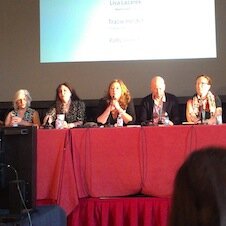
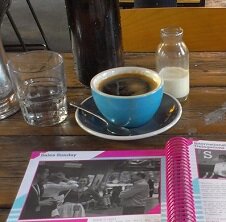
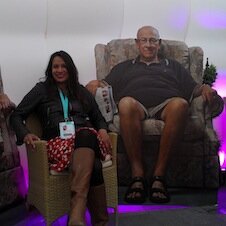


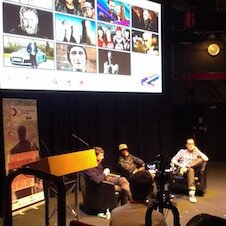
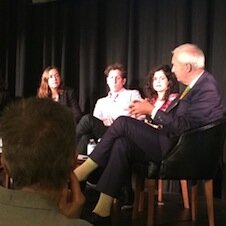
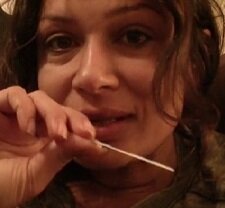
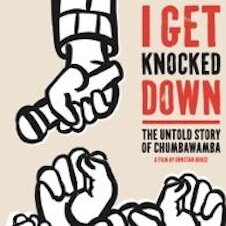
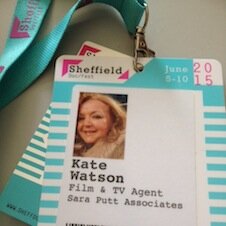
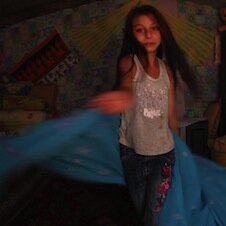
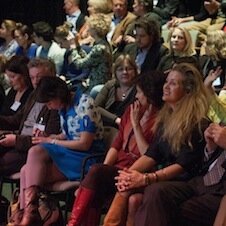



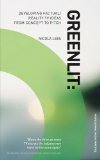 Industry insiders say it is:
Industry insiders say it is:

